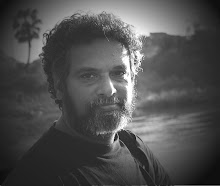Lankalakshmi@kollam fest

Kollam Fest is destined to be the signature event in Kollam for year 2011 as well as the years to come. Kollam Fest aims to showcase our rich Culture & Heritage, Tourism potential, Investments for the new ventures, et al through the month long gala event. The fest aims to constitute an award in the name of the late renowned actor O.Madhavan for the best professional theatre group in Kerala.
Vayala Vasudevan Pillai Theatre Fest

Kollam is the abode of the largest number of mainstream theatre groups of Kerala; Kollam District hosted the first workshop on theatre was initiated by G Sankara Pillai that heralded the arrival of the modern theatre in Kerala, and Kollam the birthplace of eminent playwrights Pulimana Parameswaran Pillai, CN Sreekantan Nair, Kadavoor G Chandran Pillai, O Madhavan and Vayala Vasudevan Pillai. Thus this city should be a natural arena where meaningful theatre has to occur. The different plays featuring in this fest is aimed for the same.
The Vayala fest is inaugurated by the veteran actor from Tamil nadu Y G Mahendra and his play titled Venka 3 written by Chithralayam Shreeram, directed by YG Mahendra, and performed by UAA Chennai marked the opening of the fest on the eve of 21 11 2011.
The other plays and their schedule in the fest are
Melvilasam Directed by Soorya Krishnamurthy; performed by Soorya Theatre Group Thiruvananthapuram- 27/11/11 7.00 pm

Dr Raja Warrior will commemorate Vayala Vasudevan Pillai before the play.
Lankalakshmi written by CN Sreekantan Nair, Directed by Chandradasan and performed by Lokadharmi, Kochi- 03/12/11 7.00 pm

Chandradasan will commemorate CN Sreekantan Nair before the play.
Makkalkoottam, written by Suresh Babu Sreestha, directed by Pramod Payyannur, performed by Prakash Kalakendram Neeravil, Kollam- 05/12/11 7.00 pm

The day’s commemoration talk is on Kadavoor G Chandran Pillai and will be done by Prof. Biyatrees Alex.
Spinal Cord, written and directed by Deepan Sivaraman, and performed by Oxygen theatre company Thrissur - 06/12/11; 7.00 pm

P Balachandran will talk on Prof G Sankara Pillai at 6.30 pm
Kalamkariyude Katha, written by Sreeja Arangottukara, directed by Smitha M Babu, and performed by Prakash Kalakendram Vanithavedi, Neeravil, Kollam - 08/12/11 7.00 pm
Kalamkariyude Katha,’ vividly portrays the creative sensibilities and inner conflicts of a potter woman. It unveils a widow’s zest for life and her struggle to survive in a society that still ostracises widows in many ways. The turbulence that Kalamkari has to undergo in her life followed by her husband’s death and her struggle to keep her creativity alive by making pots form the central theme of the play. But through it, ‘Kalamkariyude Katha’ also throws light on the survival instincts of human beings in a poignant manner, and the play oscillates between fantasy and reality. The play, scripted by Sreeja K.V., had won the Kerala Sangeeta Nataka Akademi’s award for the second best script.
There will be a debate on women’s theatre at 6.30 pm
Lankalakshmi
“The plot of this play is not just the frailty of a king who is an admirer of beauty. War, diplomacy, ethnic conflicts, ups and downs of ethics, etc are engrossed in it… It originated from the blood that surged from the severed
This play is about the anxieties and agonies of war. It can be said that war is the protagonist and antagonist of this play, and is reflected in different shades in different characters, with Ravana as the key metaphor. Death is projected in all its intensity; the death of heroes is continuously taking place, one after the other. Amidst the continuity of deaths of dear and near ones, the play envisages the plight of Ravana caught in the cross-roads of life and death, the ultimate fate of an egoist reveling in his physical and mental prowess.
The play starts when Rama and his army has crossed the sea, reached Lanka and is waiting outside the fort of Ravana; the war is imminent and near. The first act of the play portrays the internal conflicts and turbulence in the Ravana clan at the face of the war; different voices rise within the race.
"All the treasures in the three worlds should belong to Lanka," is the motive force that leads Ravana. He went after women, not just because he fancied them, but also to enrich his pedigree, to glorify Lanka. In its wake might have come, lurking shadows of crime and curse. Sita is the priceless jewel that should be part of Lanka, even if she is married to another man.

The play is designed to be an intimate experience to the audience where the acting area merges and diffuses into the audience area. The presence of Sita and Soorppanakha depicted with paintings. The throne, palace, and the mighty Himalayas, where Ravana travels are abstracted into a multilevel set painted by monotones of blue.
The music has sounds of rain, thunder, wind, birds, and animals to create the ambience of a war field surrounded by ferocious sea of blood.
The narrative of the play takes place in a three dimensional space with varying perspective. The three different narratives used simultaneously merges and juxtapose to create a more universal meaning to the whole rendering. The text written by CN Sreekantan Nair is sandwiched between the Recital of Adhyatma Ramayana written by Ezhuthachan which is based on Bhakthi and Ramayana by Kambar (rendered as Tholpavakoothu) which treats Ramayana down to earth and looks into the potentials of the text as a performance.

This is the third performance of the play.
Labels: Chandradasan, CN Sreekantan Nair, Lankalakshmi, Lokadharmi, theatre

